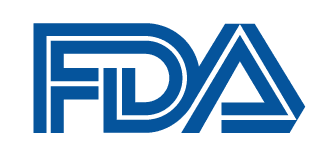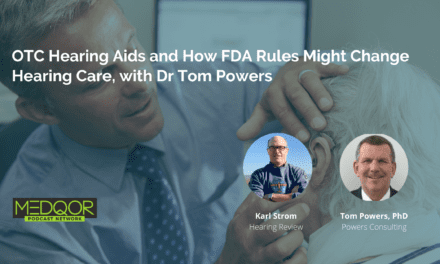Editor’s note: Since this post was last updated, Senate Finance Committee Chairman Chuck Grassley (R-Iowa) and Sen. Elizabeth Warren (D-Mass) sent a letter to the Food and Drug Administration (FDA) pressing it over its “lack of action on writing rules to allow the sale of over-the-counter hearing aids.” Click here for details.
The proposed regulations for a new class of over-the-counter (OTC) hearing aids—which had previously been slated for release by the US Food and Drug Administration (FDA) this month—are now likely to be released sometime in the first quarter of 2020, according to industry sources and market analyst Niels Leth of Carnegie Research. And, it might even be later, potentially causing them to bump up against the FDA’s August 18, 2020 deadline.
As previously reported in this blog, a Notice of Proposed Rulemaking (NPRM) for a “category of hearing aids to promote the availability of additional kinds of devices that address age-related hearing loss” was cited as having an action date of sometime in November (11/00/19) by the FDA. However, this Unified Agenda publishing date is widely regarded as a soft “target date.” According to industry sources, the document has not yet been sent to the Office of Management and Budget (OMB) and the Office of Information and Regulatory Affairs (OIRA)—which usually require at least 4-8 weeks for their review.
Given this, it’s likely the very earliest the proposed regulations for OTC hearing devices would be available for public comment is January or February 2020. However, FDA has not yet made a public statement regarding the timeline. It’s even possible, due to some of the complexities the Agency is facing on the issue, it may struggle to meet the deadline.
The FDA’s deadline for the proposed OTC hearing aid rule is August 18, 2020. Because hearing aids usually take a backseat to other life-saving devices and more pressing issues within the FDA, it is not uncommon for the Agency’s timelines for hearing-related regulations to change. Srinivas “Nandu” Nandkumar, PhD, then the branch chief of the FDA’s Division of Ophthalmic and Ear, Nose, and Throat (ENT) Devices, warned about factors working against an accelerated timeline as long ago as the 2017 ADA Convention. More recently, Dr Nandkumar told Hearing Industries Association (HIA) members at the 2019 Membership Meeting that it was preferable to have a lot of time between the proposed regulations and final rule-making on the issue of OTC devices, suggesting that the proposed OTC rules might be coming sooner than anticipated. However, as noted, hearing devices traditionally have a lower priority in comparison to other life-saving medical devices, and the FDA continues to have a backlog of issues requiring attention. There also has been a reshuffling within FDA, with Dr Nandkumar becoming director of the FDA’s Dental Devices division—although it is reported he will continue to be involved in the OTC hearing device regulations. Finally, the vastly differing state dispensing laws and regulations regarding both traditional and online hearing aids may also be complicating the rule-making tasks.
The OTC Hearing Aid Act of 2017 was passed by Congress and signed by President Trump on August 18, 2017. It requires the FDA to create and regulate a category of OTC hearing aids for adults with “perceived” mild-to-moderate hearing loss and to ensure the devices meet the same high standards for safety, consumer labeling, and manufacturing protection that all other medical devices must meet. The legislation requires the FDA to establish an OTC hearing aid category within 3 years of passage of the legislation, and finalize a rule within 180 days after the close of the comment period—or an August 18, 2020 deadline for the proposed rule.
NPRMs explain what the FDA intends to require or do, as well as its scientific and/or policy reasons for the decision. An NPRM also solicits comments from the public, and these are generally submitted via the Federal Government’s electronic docket site, available at Regulations.gov. FDA can also issue Advance Notice of Proposed Rulemaking (ANPRM), announced in The Federal Register, for formulating its rules.
On October 28, FDA did publish in the Federal Registry its final order regarding the De Novo application for the Bose Hearing Aid—a user-fitted hearing aid intended for mild-to-moderate hearing loss that can be adjusted via a mobile app—preparing the way for other self-fitting hearing aids for similar special controls. However, this is not to be confused with the new OTC hearing aid classification mandated by Congress.
Karl Strom is editor of The Hearing Review and has been reporting on hearing healthcare issues for over 25 years.







What are the differences between the self fitted hearing devices such as the Bose denovo and the OTC devices mandated by the federal law passed by Senator Warren.?
At this point, no one knows exactly what the Bose Hearing Aid will look like or its functions until they introduce it to market. Similarly, regulations for the OTC products are still in the process of being formulated by the FDA, and should be released for public comment soon.